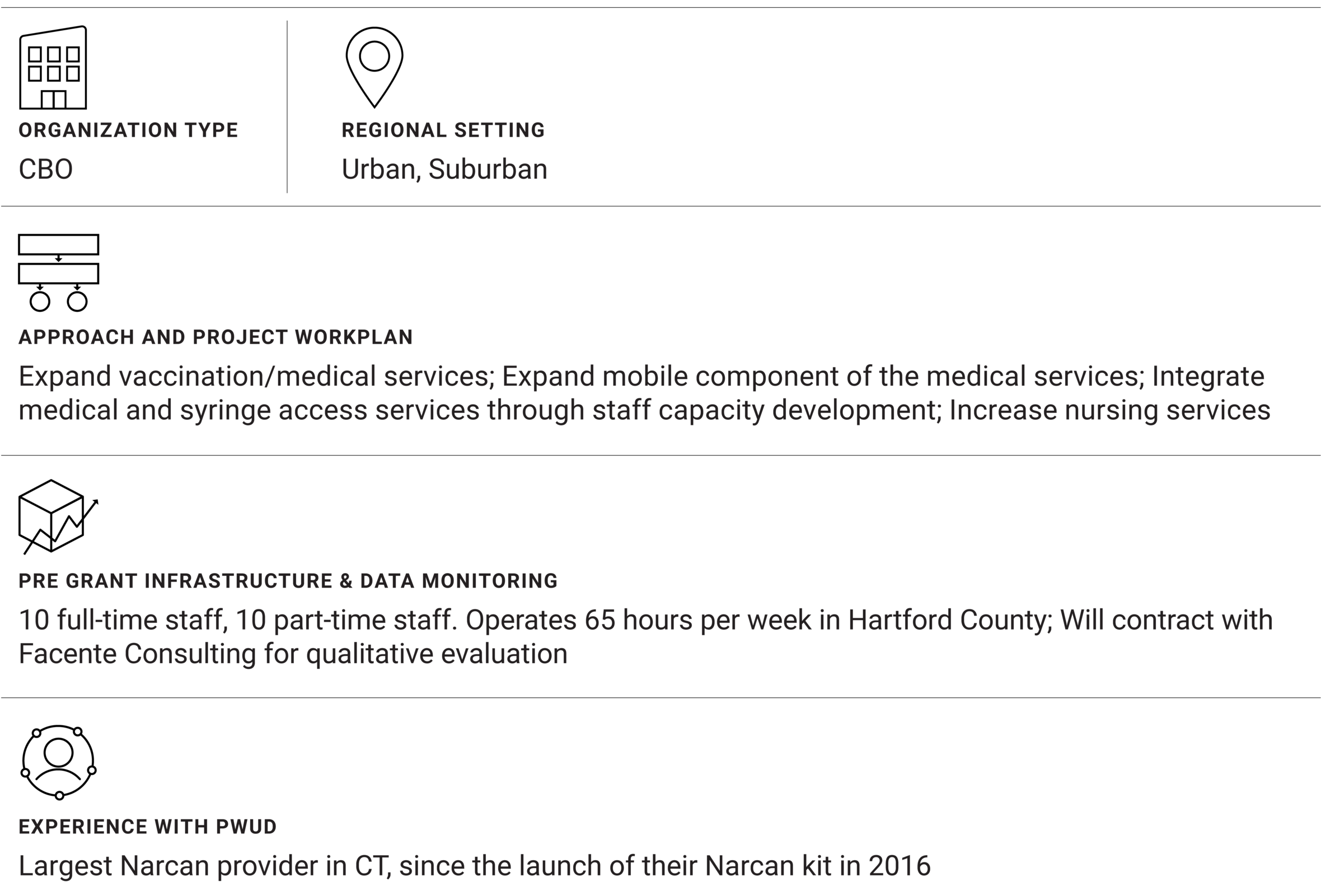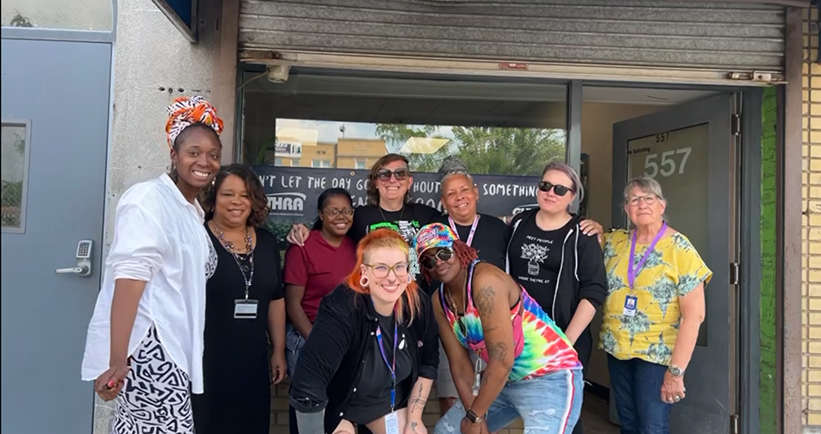
Connecticut Harm Reduction Alliance (CTHRA)
Overview
CTHRA is a primary provider of harm reduction services throughout central Connecticut, providing syringe services, overdose prevention and education, naloxone distribution, drop-in center services, and clinical services to people who use drugs. Over the years, CTHRA has merged with and taken on other programs, such as the Sex Workers & Allies Network (SWAN), to expand services to new communities and grow its strong staff. Their mobile services include personalized delivery services, and the agency has concentrated networks in Northern and Southern Connecticut.
Hartford we have very, very heavily covered. We have services there from 7 am to 11 o’clock at night.
Creative Approaches
Innovative Funding Partnerships
Through a partnership with the Connecticut Department of Transportation, CTHRA have been expanding services for community members along the “CTfastrak,” a rapid transit line operating on a bus-only roadway, which connects many towns and small cities throughout the area, changing the landscape for people who use drugs and connecting communities to Hartford. The physical shelters and late-night services are a resource for many people experiencing homelessness in the area, particularly those marginalized from care and housing services. CTHRA outreach staff provide not only harm reduction supplies but housing-focused case management services to connect unsheltered participants to shelter and housing options and essential supplies such as tents and flashlights, which strengthen rapport and relationships that CTHRA can leverage to refer and connect participants to health care services.
Outreach Innovations
CTHRA continues to create new strategies to strengthen and expand outreach services, including portable boxes called “Rovers’ that can easily be packed into outreach vehicles and brought on foot. These wheeled boxes contain essential harm reduction supplies to provide SSP services from mobile locations and can be packed in advance by staff, allowing outreach staff to grab and go.
Unique Medical Partnerships
CTHRA sought out partnerships with medical providers to integrate vaccination services into other services both in the office and in the streets. Staff nurses provide health education, wound care, and, through this project, expanded vaccines.
Community Tailored Incentives
Responding to restrictions on cash incentives for clients and the barriers for clients to use gift cards from major retailers, CTHRA partnered with local bodegas to create prepaid gift cards. CTHRA had gift cards printed themselves, allowing for program info and messaging to be included, then worked with local stores to track the value added and spent.
Challenges
Vaccine Storage
CTHRA experienced challenges with identifying vaccine storage for fixed-site and mobile uses. Early in the pandemic response, much information was scarce, though CDC and State agencies are not permitted to recommend specific branded products. This led to agencies having to sort through long lists of approved refrigeration options, for example.
Gentrification
Shifting demographics and changing neighborhoods present an ongoing challenge for CTHRA. Long-term working-class and historically Black neighborhoods in Hartford are experiencing rising rates, new developments, and other forces that push participants into new communities farther from the city center and, in some cases, into neighboring towns. CTHRA staff must consistently change outreach strategies to meet the needs of participants and keep folks connected to services and community.
Total Monthly Data
|
Service |
Number of Encounters |
|
Received education on COVID and COVID vaccination |
6657 |
|
Referred to COVID vaccination |
1793 |
|
COVID-19 Vaccination (on-site) |
550 |
|
COVID-19 Vaccination (off-site) |
283 |
| Monkeypox vaccinations | 779 |
| Other vaccinations | 80 |
| Total encounters | 24427 |

